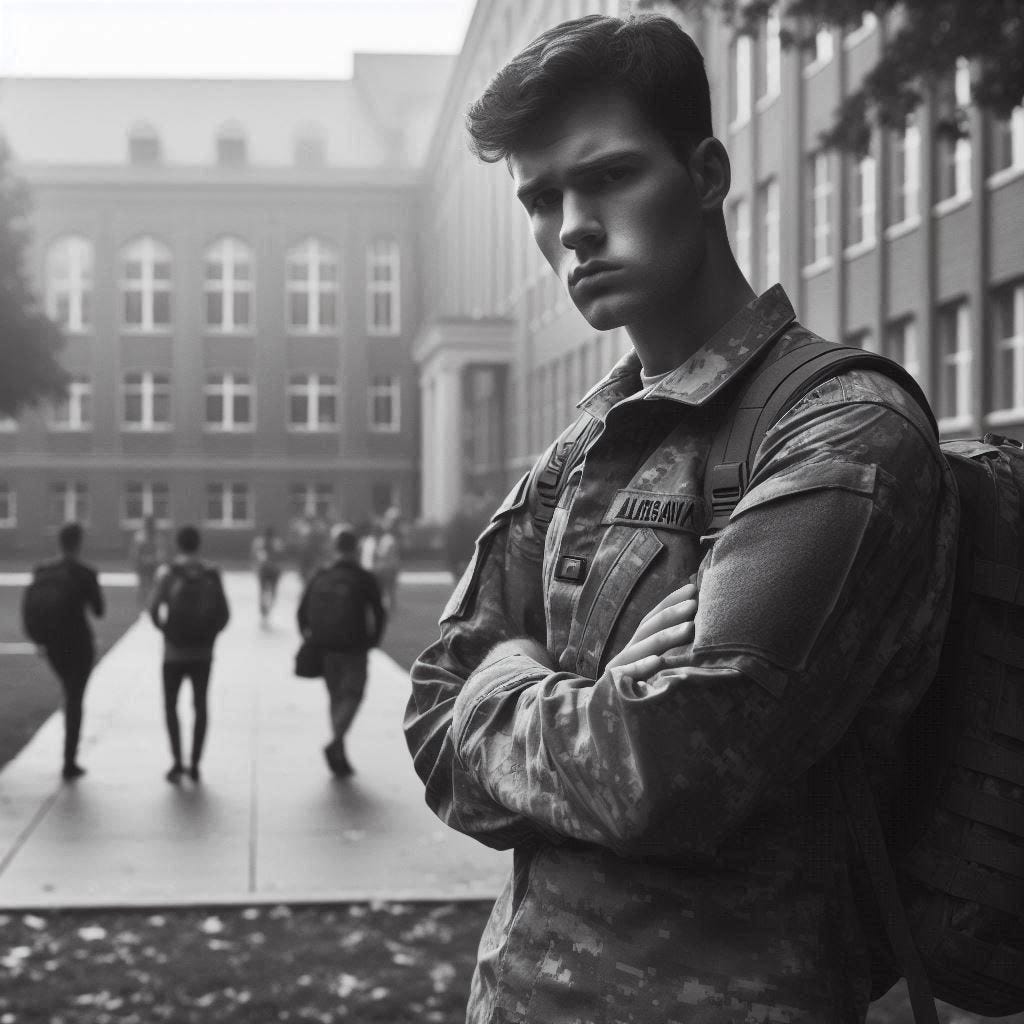A new installment of Hunted, an autobiographical account of God’s action in the life of a Vietnam War era radical activist. New to the series? This introduction provides context for the events described here. An index of other episodes, updated monthly, is also available.
Such was the reputation of the Progressive Labor Party and its front groups in 1970 that if people knew you were involved with them they either avoided you like the plague or admired and looked up to you for your revolutionary zeal. I was reminded of that when I happened to be downtown on some errand or other and ran into Raymond, whom I had known when I was just getting started as a political activist.
I’d been working for the grape boycott then, supporting Cesar Chavez and the United Farm Workers in their campaign to unionize grape pickers and other agricultural workers. Raymond, a high school senior, loved the camaraderie of the picket line and often joined us there.
Unfortunately, our target, a Rhode Island-based grocery chain, ignored our nightly picket lines, so I unwisely resorted to a more extreme measure: a shop-in. The plan was for boycott supporters disguised as shoppers to fill carts with perishable foods, then exit en masse, leaving a huge mess behind.
For obvious reasons, women in their 30’s or older made the most convincing “shoppers,” but when Raymond, then a high-school senior, got wind of what we were planning, he nagged me until I gave in and allowed him to join. Not surprisingly, my lapse in judgment led to disaster. Raymond was accosted by store security, and instead of maintaining innocence, as I had coached the “shoppers” to do, he confessed everything. The store manager called his father, an attorney, who somehow convinced them not to press charges. Soon afterward, the father tracked me down to the university storage building where I was squatting, burst in while I was unrolling my sleeping bag for the night, and demanded that I have no further contact with his minor son.
I hadn’t seen Raymond from that day to this. I’d thought he might harbor a grudge for what happened that night at the store, but when he spotted me on the street, his eyes lit up with surprise, and he waved and hurried over.
He’d been underage the previous spring, but now, he announced, he was eighteen and in college, so he could talk to whomever he wanted. He was intrigued to learn I was now organizing for PL. We had no presence at Bryant College, where he was enrolled as a freshman business major, but he had heard of us and knew we were militant and very aggressive. Maybe if I came out for a day he and I could get something started.
I couldn’t help smiling. Same old Raymond. He wanted to be in the thick of things but had no idea what he was getting himself into. Not exactly the most promising recruit for the cause. You can’t build a communist movement with lawyers’ sons seeking excitement. Still, it couldn’t hurt to ride out to Bryant one day, pass out antiwar leaflets, and sell a few copies of the Party newspaper. Raymond said military recruiters sometimes set up tables in the Student Center. If I timed my visit to coincide with theirs I might be able to provoke them into a public debate.
Bryant is a small private college about 20 miles from Providence. I enjoyed the drive out there. It was a refreshing change from my daily routine at RIC. We reached the Student Center in mid-morning. At one end of a big sunny atrium, a tall awkward-looking man in an Army uniform was busy setting up a table for his recruiting materials. Students milling about in the atrium weren’t paying any attention, so Raymond and I ignored him and distributed the leaflets I had brought. Raymond had warned this was a really conservative campus, but I couldn’t detect any hostility. Quite a lot of students who took leaflets were curious to find out if PL was going to be active on campus, even though they wouldn’t give me their names and showed no interest in being directly involved.
Near noon, students began to congregate at the recruiting table. Raymond and I pushed through to the front of the crowd. I interrupted the recruiter’s answer to somebody’s question, asking why he was supporting the imperialist war in Vietnam.
“So let me guess, you’re here to recruit officers to go out and slaughter Vietnamese workers and small farmers and rape their country and resources.”
The crowd around us grew quiet, and people pressed closer.
“No, no, you’re way off base.” The thin head in front of me shook vehemently and a pair of dark eyebrows arched to an incredible height. “We’re fighting the Cong. They’re the ones who are doing all of the raping and slaughtering. We’re trying to protect the Vietnamese.”
“So if I’m off base and you’re protecting the Vietnamese, who are you calling the Cong?”
A few students around me chuckled at the sarcasm, but eyebrows didn’t pick up on it.
“The Cong are invaders!”
“Invaders from where?”
The eyes locked on mine. I couldn’t help grinning. This guy hadn’t a clue. It took me three or four tries to get him to admit that the Cong were actually the Viet Cong—that is to say Vietnamese. He tried to argue that they were all North Vietnamese. When I countered that Vietnam was one country, not two, he had no idea what to say, so I followed up with another question: did he think it was possible for a country to invade itself?
That drew guffaws from the onlookers. The recruiter now appeared thoroughly rattled, so I turned up the heat with more questions. It was hard to believe the Army would send out someone so ill-prepared. This was like shooting fish in a barrel. Really it would have been more interesting if the poor guy had been able to mount some kind of defense. Once again, the voice of conscience made itself heard, though not loudly enough that I stopped arguing. In later years I could never look back on the episode without a twinge of embarrassment.
Eventually the comedy wore thin and the people around us drifted away. We passed out the rest of our leaflets and decided to get something to eat. The cafeteria was nearly empty now, so Raymond and I were able to find a table to ourselves by the south windows.
“Wow, that was incredible, you really nailed him!” Raymond enthused when we sat down with our food. I bent over my tray, exhausted but satisfied. I really had nailed that hapless recruiter. Never mind what I now know about the viciousness of the Viet Cong tactics, that they really were the ones doing the raping and slaughtering, even though American, in the heat of battle, sometimes reciprocated. Never mind about the frustration of American soldiers, handcuffed by political leaders determined to sanitize war and on constant guard against a devious enemy who melted at will into the mass of civilians America was trying to protect. Never mind Communist ambition to expand their rule and impose their totalitarian rule over free nations.
None of this had appeared as yet on my mental horizons. I lived in the naive world of self-righteous fury. As the adrenaline rush of the confrontation at the recruiting table subsided, I realized I was ravenously hungry. It felt good to sink my teeth into a hamburger. It felt good sitting alone in that big empty cafeteria bathed in the early afternoon sun and Raymond’s adulation. It felt good being done for the day with leaflets and arguments.
It didn’t occur to me the relief I felt in that big sunny dining hall might be a clue I wasn’t cut out for life as a radical activist. I just knew the calm of the empty room was a welcome contrast to the turbulence of my life in the past months. The tranquility of that day and the slow draining of adrenaline from my feverish brain were something I’d unconsciously longed for. Looking back, I find it ironic that it should have been clueless Raymond who gave me a taste of what it was that I needed—the same Raymond whose earlier arrest shamed me more than anything else I ever did as a radical activist. Now that I am a Christian, I can’t help but wonder whether or not the Lord sent him to temper my zeal. If he did, I’m pretty sure that Raymond, in those days, suspected it as little as I did.




